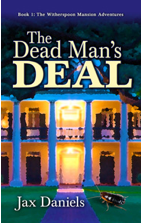Teresa Edgerton began telling stories as soon as she learned to talk; she began scribbling them down as soon as a teacher put a pencil in her hand; and luckily for us fantasy readers, sixty years later she is still inventing them. Teresa has published many short stories and novels full of wit and charm and intriguing creatures and characters. Her latest releases are Goblin Moon (being rereleased by Tickety Boo Press), and The Queen’s Necklace (being released by Harper Voyager on Kindle for the first time and currently available for preorder on Amazon). Also look for her work under the pseudonym of Madeline Howard.
World Building and the Magical World View
One thing that fantasy writers often forget is the question of how a belief in magic should shape a character’s world view, and how their culture should shape their ideas on magic. In different places and different eras the answer may differ greatly, or sometimes hardly at all, but here I am going to talk about the Western European Medieval era that inspires so many fantasy settings.
We can never know exactly how the people who lived in the Medieval period thought or exactly how they saw their world, but we can learn a lot from their writings, their superstitions, and their rituals. We can pick up details that enrich what we write and lend it the kind of authenticity that makes what we write more convincing. Although we have been trained to see the world differently than people in Medieval times, many of the same dreams and nightmares linger just below the surface of our minds. You can call it the collective subconscious or whatever you will, but what it comes down to is that readers will recognize, on some level, that what you are writing is “true.”



